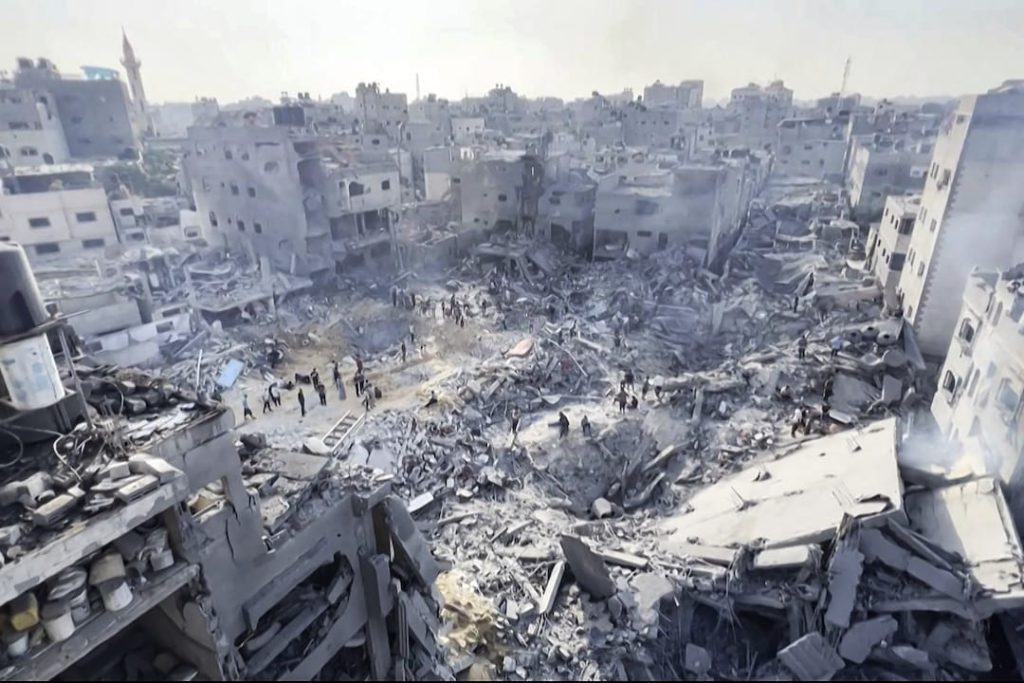The war in Gaza is no longer just a local tragedy it is a shockwave shaking the entire Middle East. From the crowded streets of Amman to the strategic ports along the Red Sea, one truth is undeniable: the region cannot achieve lasting stability without resolving the Palestinian issue. According to the UN Office for the Coordination of Humanitarian Affairs (OCHA, 2025), hundreds of thousands have been displaced, tens of thousands killed, and hospitals, schools, and homes lie in ruins. The human toll is staggering, yet the political consequences may be even more profound.
For years, international diplomacy has sought to bypass the Palestinian question. The Abraham Accords and potential Saudi Israeli normalization were hailed as breakthroughs, designed to circumvent the core conflict. But as bombs rained down on Gaza, this illusion collapsed. Arab governments faced fierce criticism at home, forcing many to rethink their policies. Analysts at the (Carnegie Middle East Center 2025) emphasize that Palestine remains a litmus test of legitimacy in the Arab world; ignoring it risks undermining diplomatic gains across the region.
The war’s ripple effects are already destabilizing neighboring countries. Hezbollah has intensified operations along Israel’s northern border, while Houthi forces in Yemen have attacked critical shipping lanes in the Red Sea. Iran and its regional allies frame these actions as acts of solidarity with Gaza, challenging Israel and the United States. (The International Crisis Group 2025) warns that Gaza is far from isolated; left unresolved, it could ignite broader instability across the Middle East.
Globally, the conflict is reshaping perceptions and alliances. The United States has faced mounting criticism for its unconditional support of Israel amid the humanitarian disaster. According to the (Brookings Institution 2025), American credibility among Arab youth has sharply declined, creating an opportunity for powers like Russia and China to expand influence by portraying themselves as sympathetic to Palestinian suffering. Across Europe, massive protests reveal deep divides between governments aligned with Israel and citizens demanding justice for Palestinians. Gaza is no longer just a regional issue; it is a test of global diplomacy and credibility.
Israel’s security concerns are real no country can tolerate rockets or armed militias on its borders. Yet history shows that military might alone cannot solve the root causes of conflict. Each strike deepens despair, fuels radicalization, and narrows the space for political compromise. Reports from (Human Rights Watch 2024) and (The Guardian 2025) document the severe humanitarian consequences of repeated campaigns, reinforcing the principle that “security without justice” is temporary. Without addressing underlying grievances, Israel remains trapped in a cycle of insecurity.
The path forward must be twofold. Immediate humanitarian relief food, clean water, medical care, and safe corridors for civilians is essential (UNRWA, 2025). But relief alone is insufficient. The U.S., European Union, and other international actors must prioritize a political horizon, not just short-term fixes. Arab governments engaging in normalization talks should secure tangible concessions for Palestinians, ensuring that aid and recognition translate into real improvements on the ground. Most critically, the international community must revive serious negotiations toward a two-state solution or another viable framework with credible security guarantees and a reconstruction plan that respects Palestinian rights and dignity.
The Gaza conflict is a stark reminder: Palestine is central to Middle Eastern stability. Every ripple from Lebanon to the Red Sea is interconnected. Ignoring the core issue prolongs human suffering, regional instability, and geopolitical tension. Lasting peace will not come through shortcuts or by sidestepping Palestinian needs. The road to stability runs straight through a just and sustainable settlement for Palestinians. Until then, the region will remain hostage to cycles of violence, uncertainty, and international distrust.
Author:

Maryam Noor is an International Relations student focusing on Middle Eastern politics, conflict resolution, and global power dynamics.





Leave a Reply